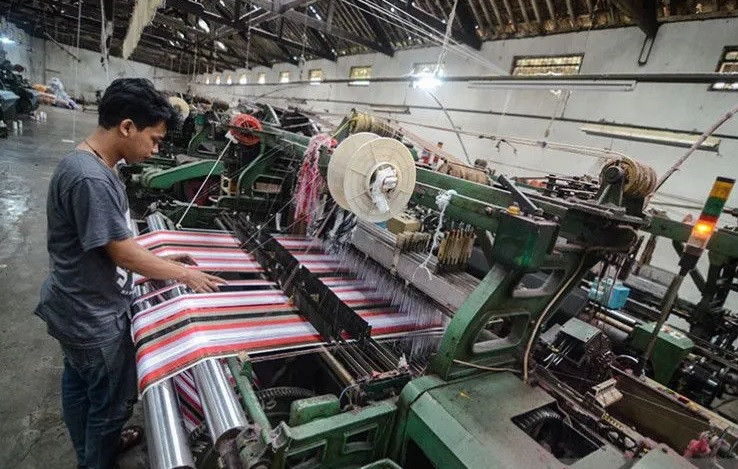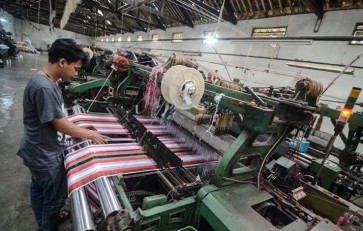Popular Reads
Top Results
Can't find what you're looking for?
View all search resultsPopular Reads
Top Results
Can't find what you're looking for?
View all search resultsWorkers at solid waste processing center lack protection
The provision of employee protection has been part of labor rights in the ILO social security standards and the United Nations 2030 Agenda for Sustainable Development.
Change text size
Gift Premium Articles
to Anyone
W
orkers at the Solid Waste Processing Center 3R (TPS3R) consistently face unhealthy working conditions and occupational risks at their workplace, yet they are not protected by a comprehensive employee protection system.
The TPS3R is one of several government programs as part of Jakstrada, a regional strategy policy prepared by local administrations under the local environmental agency to support the national policy and strategy on the management of household waste.
On a daily basis, TPS3R workers are in direct contact with unhygienic materials or organic wastes that may have been contaminated by pathogens or other toxic substances. Some also have to run waste shredder machines or grinders, which may increase their exposure to occupational injury.
Those all pose a threat to the health and safety of TPS3R workers and may bring long-term adverse effects in the future. However, despite the extreme occupational vulnerability, the majority of them are not protected by comprehensive employee protection schemes, even the most basic packages such as employee injury insurance (JKK) and life insurance (JKM).
This lack of employee protection for TPS3R workers is due to the absence of a budget allocated by the local environmental agency to cover the employee protection monthly fees. In one of the regencies in East Java, the local environmental agency claimed that they are only able to subsidize employee protection insurance for three out of six TPS3Rs in their area. And of those three TPS3Rs subsidized, only three out of 11 employees are covered, leaving the other eight TPS3R employees working with no employee protection at all.
The local environmental agency, however, is unclear as to who should be responsible for all the costs if a workplace injury happens at the TPS3R because the current policies, both from Jakstrada and Jakstranas, do not clearly address this issue.
Moreover, though this TPS3R program is under Jakstrada, the TPS3R is expected to run voluntarily within a community-based waste management framework. This becomes a justification for the local environmental agency to not allocate budgets for employee protection costs for TPS3R workers.



















